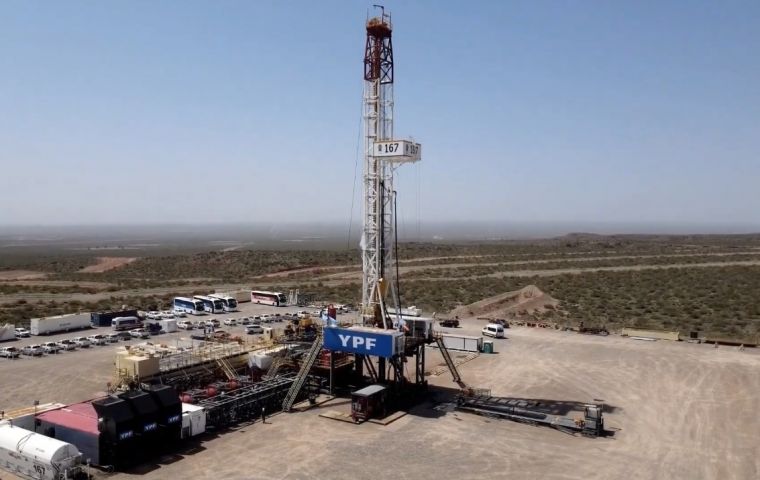
BUENOS AIRES, March 4 (NNN-MERCOPRESS) — Argentina forced to quickly ramp up LNG imports in the coming winter months to meet its heating season, as domestic gas production dwindles and Bolivian pipeline imports slow.
Argentina’s 2020 output was the lowest since 2017, as production from its Vaca Muerta shale formation fell short of expectations.
The prospect of weaker production this year prompted the energy secretariat to call on state-run IEASA to secure a floating storage and regasification unit (FSRU) and boost LNG imports.
The government also requested the re-opening of the 3.7mn t/yr Escobar import terminal last month. Escobar shut last year following a lawsuit from a nearby resident who cited the risk of an explosion.
The energy secretariat estimates that Argentina will need 21mn m³/d of additional gas in May, 42mn m³/d in June, 49mn m³/d in July, 28mn m³/d in August and 9mn m³/d in September. It will probably have to source this through spot LNG imports.
Escobar, which can only receive partial cargoes because of draught restrictions, has been Argentina’s only import facility since the country released the 150,900m³ Exemplar FSRU at Bahia Blanca in October 2018.
Escobar’s inability to take standard-size cargoes pushed up logistical costs, with IEASA typically paying a premium to spot rates for partial deliveries. Such constraints have often required vessels to unload partial cargoes in Brazil on their way to Escobar.
Vaca Muerta production was expected to meet the country’s winter requirements, reducing Argentina’s dependence on LNG deliveries and eventually allowing a switch to LNG exports. But domestic output fell to 124mn m³/d in 2020 from 135mn m³ in 2019 and 129mn m³/d in 2018, while Vaca Muerta production dropped to 14mn m³/d from 16mn m³/d in 2019 and 22mn m³/d in 2018, government data show.
Lower production last year meant Argentina had to step up its LNG receipts, with IEASA buying 31 partial cargoes, equivalent to around 17 standard-sized cargoes, up from 26 partial cargoes a year earlier.
Bolivian pipeline gas imports are not expected to recover in the coming months, despite IEASA agreeing a new short-term contract with Bolivian producer YPFB last year. — NNN-MERCOPRESS




